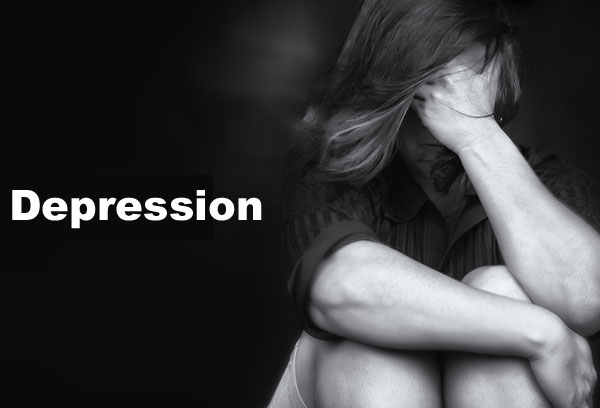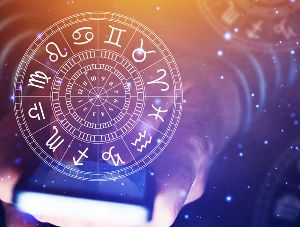Depression
We all go through spells of feeling down but if you are feeling depressed you are likely to be feeling persistently sad for weeks or months, rather than just a few days. Depression is a serious mental health condition, not a sign of weakness or something the individual can just snap out of.
Causes
Depression is more than feeling sad. And its source varies from person to person. Biological, psychological, and social factors are considered to trigger depression.
These include:- Genetic studies have revealed that a person with depression has higher chances of having relatives with mood disorders suggesting a shared genetic basis. Childhood Experiences Certain experiences like lack of parental care, sexual abuse, the death of a parent are associated with an increased risk of developing depressive disorders later in life.
Social: Poverty and social isolation are found to be connected to depression. Also marital status such as divorce or separation appears to be related to depression.
How Therapy Works
For patients with mild depression, treatment may involve support, meditative exercise, informal counseling, or formal psychosocial interventions such as cognitive-behavioral therapy, interpersonal therapy, or problem-solving therapy. Cognitive Therapy can best effective for more severe forms of depression.
Anxiety
Anxiety is a very common human emotion that comes from an experience that one is in a hazardous situation. In this sense, anxiety has evolutionary value as it is an important emotion that signals danger and risk in the environment. When individuals suffer from anxiousness their experience of fear will become over-generalized as they begin to experience that in reality. Anxiety symptoms vary from individual to individual and require the best psychologist's attention If you suffer from an anxiousness disorder you would possibly find yourself unable to stop annoying and being in a state of heightened stress most of the time. This can become an all-consuming experience taking over your life.
Causes
There are various reasons for a person to feel anxious such as financial or relationship or work issues. These anxious feelings which a person experiences under different circumstances are quite normal for a person. Anxious feelings slowly and gradually begin to take the form of disorders and this could start at any point in one's life. When the anxiety moves from mild to severe form, a person may start to have difficulty in performing his daily activities. The causes of anxiety disorders are still not known. But scientists have unraveled that the wiring of some areas of the brain is affected in those suffering from anxiety disorders. Research is on to see how this understanding of the brain can help in providing better treatment to patients with anxiety. It is also observed that people who are more prone to suffer from anxiety disorders have a history of a family member suffering from any one form of anxiety disorder. Exposures to stressful situations when they were growing up and how they learn to cope up with them are risk factors for anxiety disorders.
Types of Anxiety
Generalized anxiety disorder If you suffer from GAD you are likely to feel anxious about most things and in most situations rather than have a specific focus for your worries. This could have an effect on your concentration, sleep, and appetite and is likely to be an obstacle to being able to live your life as you would like.
Panic Disorder
If you suffer from a panic disorder you might find yourself experiencing intense panic and this could be in relation to specific situations or more generalized. Over time people who suffer from panic attacks become anxious about experiencing another panic attack so the focus of anxiety becomes the anticipation of anxiety. Other forms of anxiety are Palpitations Dizziness Sweating and health anxiety Phobias and obsessive-compulsive disorder (OCD).
Stress Counseling
Stress Counseling Stress is the body's reaction to any change that requires an adjustment or response. The body reacts to these changes with physical, mental, and emotional responses. Stress is an integral part of modern-day living. One can experience stress from the environment, bodily changes, and thoughts.
Causes
The situations and pressures that cause stress are known as stressors. We usually think of stressors as being negative, such as an exhausting work schedule or a rocky relationship. Of course, not all stress is caused by external factors. Stress can also be internal or self-generated, when you worry excessively about something that may or may not happen, or have irrational, pessimistic thoughts about life. Issues for Stress Counseling Work Pressures Family Stresses Relationship Worries Difficulty Coping Panic Attacks Irritability Physical Ailments Constant Tension
Types of Stress
Physical Stress
A common type of stress is physical stress, which refers to actual physical activities and events that wreak havoc on the human body. One good example is travel. Physical stress also includes stress brought on by sleeping too much, not getting enough sleep, spending too many hours on your feet, or working long hours.
Emotional Stress
Out of all the different kinds of stress, emotional stress is the most common. This can occur after you go through an intense breakup or divorce, lose a loved one, have a fight with your spouse, or experience any other problem that causes you to feel depressed or anxious. You may experience weight changes, feelings of isolation, and mood swings and can also feel overwhelmed at home or at work.
Traumatic Stress
When thinking about the types of stress, many people don’t think about traumatic stress. Traumatic stress is a type of stress that occurs because of some type of trauma to the human body and may lead to intense pain, coma or even death relates to. If you went through an operation, your body may experience stress until you recover from that surgery. A car accident, second or third-degree burns or even a case of pneumonia may all cause traumatic stress.
Acute vs. Chronic Stress
Out of all the different kinds of stress, emotional stress is the most common. This can occur after you go through an intense breakup or divorce, lose a loved one, have a fight with your spouse, or experience any other problem that causes you to feel depressed or anxious. You may experience weight changes, feelings of isolation, and mood swings and can also feel overwhelmed at home or at work.
Looking for "Anxiety and Depression Counseling Services" ?
Explore More Services














